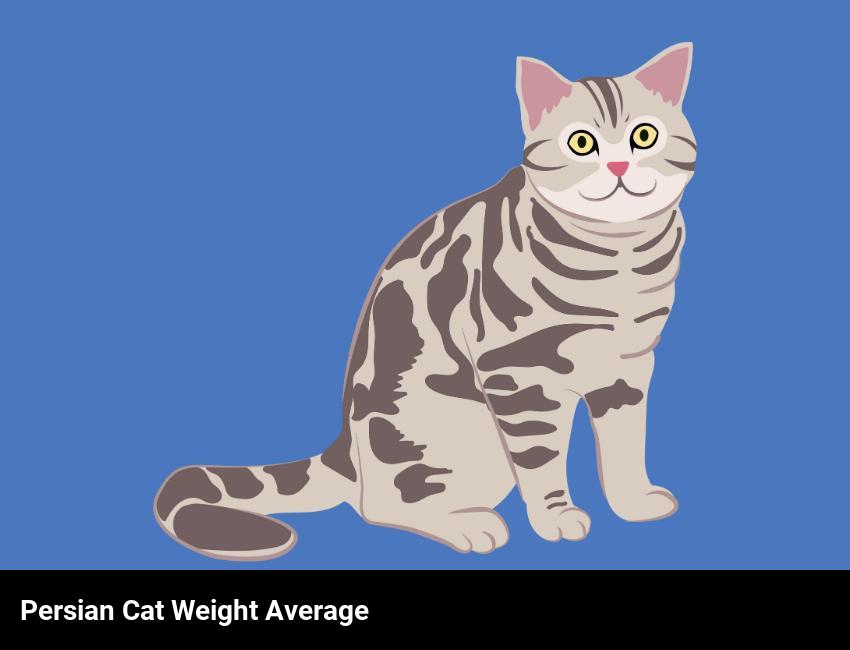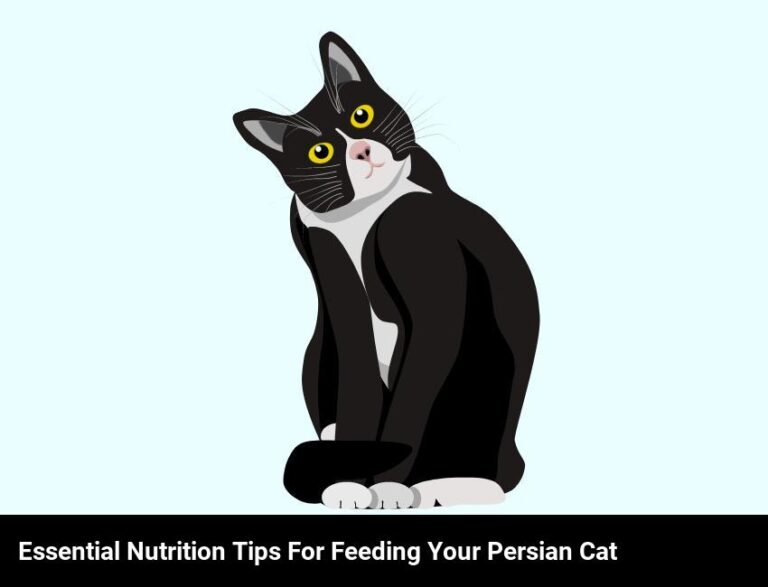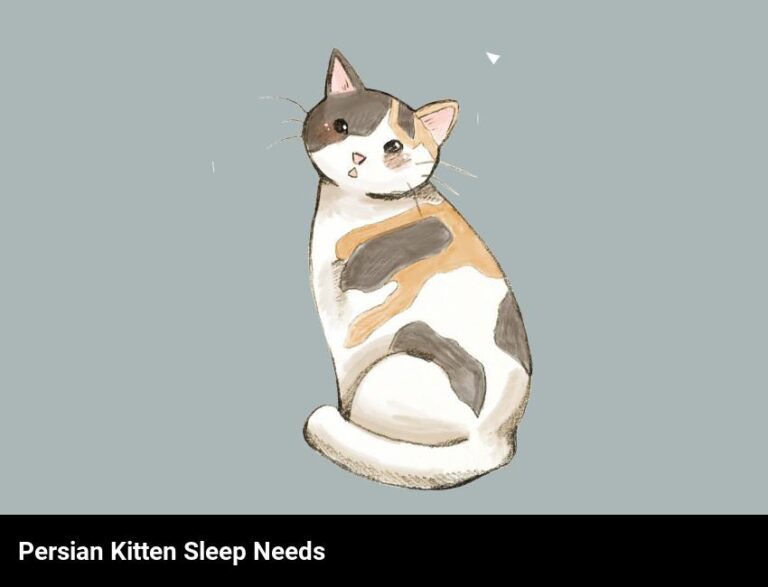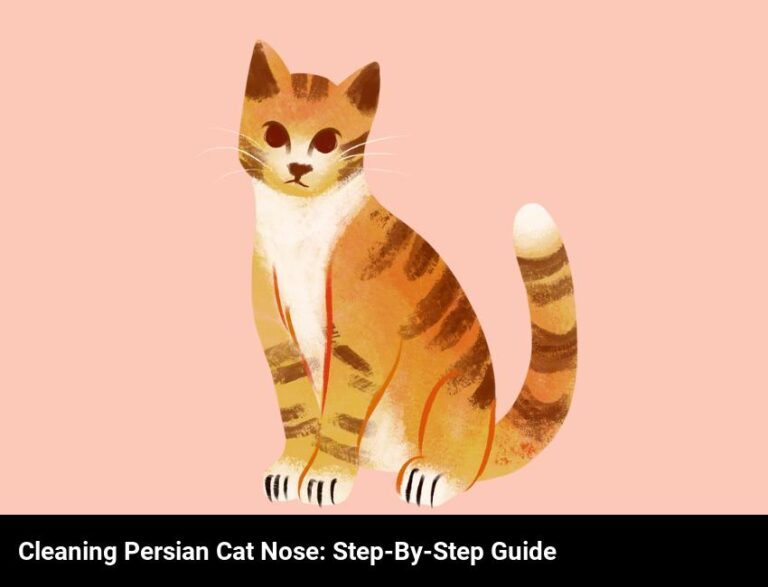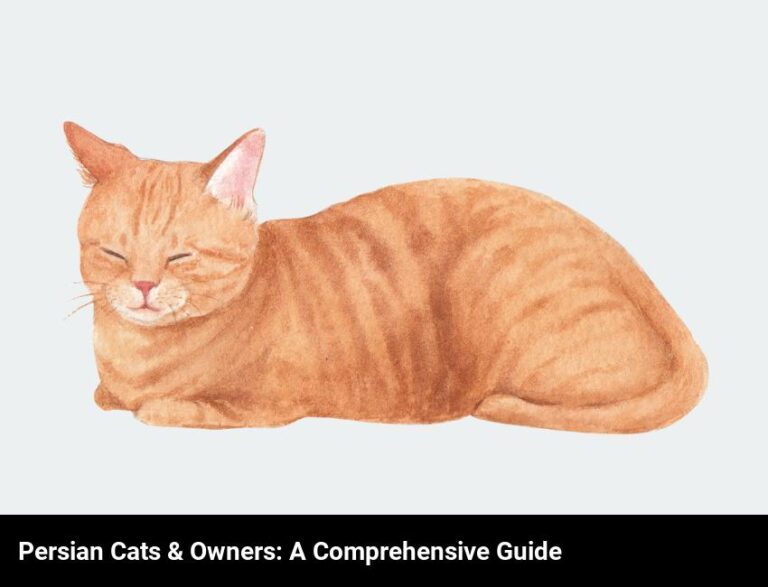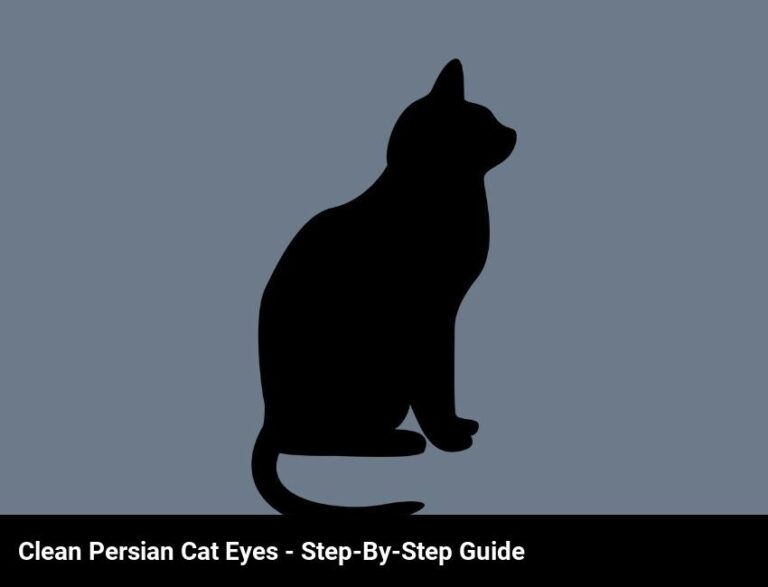Average Weight Of A Persian Cat
A Persian cat typically weighs between 8-12 pounds.
As a passionate cat lover, I have always found myself drawn to the majestic Persian breed. From their luxurious fur to their regal faces, I have always been fascinated by the beauty and grace of the Persian cat. But, as I am sure many people can relate to, I often find myself wondering what the average weight of a Persian cat is. After all, it’s important to make sure that your pet is healthy and at the right weight.
In this blog post, I will explore the average weight of a Persian cat and various factors that contribute to their weight. I will also discuss how to tell if your Persian cat is a healthy weight, the health risks associated with being overweight, and the type of diet and exercise that your Persian cat needs in order to stay at a healthy weight. Additionally, I will touch on the benefits of keeping a Persian cat at a healthy weight and any special considerations to keep in mind when trying to maintain a healthy weight.
What is the average weight of a persian cat?
Do you want to know how much a Persian cat weighs? The average weight of a Persian cat is between 6 and 12 pounds. However, it is important to note that this is an approximate range and individual cats can weigh more or less than this.
If you have a Persian cat, you can weigh them regularly to ensure they are staying within a healthy weight range. Make sure you are using a proper cat scale, as these are more accurate than regular scales.
In general, if you feel your cat is too thin or too heavy, you should take them to the vet for a check-up. Your vet can provide helpful advice on how to adjust your cat’s diet to keep them at an ideal weight.
Persian cats tend to be very big-boned and well-muscled, so it’s important to keep an eye on their weight to make sure they are not becoming overweight. Overweight cats are more prone to health issues such as diabetes, so it’s important to take preventative measures to keep them healthy.
So, the average weight of a Persian cat is between 6 and 12 pounds, but individual cats may weigh more or less. Make sure you are regularly monitoring your cat’s weight and consulting with your vet if you have any concerns.
What are the factors that determine the weight of a persian cat?
When it comes to determining the weight of a Persian cat, there are several factors that come into play. To start with, the breed of a Persian cat plays a huge role. Generally speaking, a purebred Persian cat weighs more than a cross-bred Persian. The size of a Persian cat also depends on its age. Young Persian cats are typically smaller than adult cats.
In addition, the gender of a Persian cat can be a factor in its weight. Female kittens are usually lighter than their male counterparts of the same age. However, this difference usually evens out when the cats reach adulthood.
Finally, the diet of a Persian cat is an important factor when it comes to its weight. Persian cats should be fed a high-quality diet that is rich in essential nutrients. This helps to ensure that the cat is getting all the necessary vitamins and minerals it needs to stay in good health and achieve a healthy weight.
All these factors can influence the weight of a Persian cat, and it’s important to consider them when estimating the average weight of a Persian cat.
How can you tell if your persian cat is a healthy weight?
Do you have a Persian cat? Are you wondering if your cat is a healthy weight? Here’s how you can tell.
First, look at your cat from a side perspective. If your cat’s sides appear to be slightly tucked in, your cat is at a healthy weight. If your cat’s sides appear too concave or too convex, it could be an indication of an unhealthy weight.
Next, feel your cat’s ribs. If you can feel your cat’s ribs with a light pressure, your cat’s weight is likely in the healthy range. If you cannot feel the ribs or have to press down to feel them, your cat may be overweight or underweight.
Finally, check your cat’s litter box. If you notice your cat has firm, round stools, it’s a sign that your cat is getting enough nutrients and is likely at a healthy weight. If the stools are unusually small, large, or have an irregular shape, it could be a sign that your cat is not getting the right amount of nutrition and may be too thin or too heavy.
By checking these three things, you can quickly tell if your Persian cat is a healthy weight. If you’re still unsure, contact your veterinarian for more advice.
What are the benefits of keeping a persian cat at a healthy weight?
Keeping a Persian cat at a healthy weight has a plethora of benefits! Here are a few of them:
- Increased longevity: Persian cats that are kept at a healthy weight tend to live longer, healthier lives. This is because they are less prone to diseases and illnesses that overweight cats are more prone to.
- Improved mobility: Keeping your Persian cat at a healthy weight will improve their mobility and allow them to be more active and playful. They will be able to keep up with the other cats in the household and have more energy to explore and play.
- Reduced risk of heart disease: Overweight cats are more likely to suffer from heart disease, which can be life-threatening. Keeping your Persian cat at a healthy weight will help to reduce the risk of heart disease and keep them healthy and happy.
- Improved digestion: Persian cats that are kept at a healthy weight are less likely to suffer from digestive issues such as constipation and vomiting. Keeping your cat at a healthy weight will ensure that their digestive system remains healthy and functioning properly.
- Reduced risk of obesity: Keeping your Persian cat at a healthy weight will reduce their risk of obesity, which can lead to a variety of other health issues. Keeping your cat at a healthy weight will also help to keep their metabolism functioning properly.
It is important to remember that Persian cats are prone to obesity and it is important to take the necessary steps to keep them at a healthy weight. By feeding them a balanced diet and exercising them regularly, you can help your Persian cat live a long, healthy life.
Are there any health risks associated with a persian cat being overweight?
Yes, there are definite health risks associated with a Persian cat being overweight. An overweight cat is at risk for developing a variety of medical conditions and may have a shorter life expectancy.
One of the biggest risks associated with a Persian cat being overweight is a decrease in joint health. Extra weight places additional strain on the joints, which can lead to painful arthritis. An overweight cat may also have difficulty jumping and climbing, which can lead to depression and anxiety.
Obesity can also lead to heart and respiratory problems. Cats with extra weight have to work harder to move and breathe, which can put a strain on their internal organs. Additionally, an overweight Persian cat may be more prone to diabetes, urinary tract infections, and a host of other health issues.
Finally, it’s important to note that an overweight cat may also be more vulnerable to injury and infection. Extra weight can make it difficult for a cat to maneuver, which can lead to falls and scrapes. Additionally, an overweight cat may have a weakened immune system, making them more susceptible to infections and diseases.
Overall, it’s important to keep your Persian cat at a healthy weight in order to prevent health issues. Regular exercise, a balanced diet, and plenty of playtime can help ensure your cat stays fit and healthy.
What type of diet should a persian cat have to stay at a healthy weight?
If you’re the proud owner of a Persian cat, you know that they have a unique look and personality, but did you know that they also have unique dietary needs? To keep your Persian cat at a healthy weight, they should follow a diet that’s high in protein, moderate in fat, and low in carbohydrates.
When buying food for your Persian cat, look for foods that are specifically designed for cats of this breed. These foods will provide your cat with the right balance of nutrients, including essential amino acids and fatty acids. Additionally, they should also include a blend of prebiotics, probiotics, and digestive enzymes to ensure that your cat’s digestive system is functioning optimally.
In addition to a well-balanced diet, your Persian cat’s diet should also include plenty of fresh, clean water. Fresh water is essential for any cat, but especially for Persians since they have longer coats than most cats. Make sure to clean your cat’s water bowl daily and fill it with fresh, filtered water.
You should also feed your Persian cat small portions throughout the day instead of one large meal. This will help to keep their blood sugar levels steady, preventing them from overeating. Additionally, having small portion sizes also helps to prevent digestive issues, as Persians are prone to having sensitive stomachs.
By following a healthy diet and providing your Persian cat with plenty of fresh, clean water, you can help ensure that they stay at a healthy weight.
How much exercise does a persian cat need to maintain a healthy weight?
If you have a Persian cat, you probably want to make sure they maintain a healthy weight. Exercise is an important factor in achieving this goal, so it’s important to know how much exercise your Persian cat needs. Generally speaking, Persian cats need about 30 minutes of exercise a day, including both playtime and walks outside (if possible).
Playtime is a great way to get your Persian cat moving. Try to make it interactive, by playing with toys or engaging with them in play activities. You can also use a laser pointer or other toys to get your cat running and jumping around. If you have the time, try to do at least 15 minutes of playtime each day.
If you are able to take your Persian cat outdoors, walks are a great way to get your cat exercising and enjoying the outdoors. Again, aim for around 15 minutes each day and be sure to keep your cat on a leash while outside. Walks are also a great way to bond with your cat and give them some mental stimulation.
With these tips, you can help your Persian cat maintain a healthy weight. Just remember, consistency is key! Make sure to make time for exercise every day and your cat will thank you for it.
Are there any special considerations to keep in mind when trying to keep a persian cat at a healthy weight?
Yes, there are! When trying to keep a Persian cat at a healthy weight, there are a fewspecial considerations that you should take into account.
Firstly, you need to make sure the cat is getting routine exercise. This could be anything from chasing a laser pointer around the house to playing fetch with a toy. Exercise is a crucial part of helping your cat maintain a healthy weight.
Another consideration to keep in mind is making sure you are feeding your cat the right type and amount of food. You should be sure to feed your cat a high-quality diet that is specifically made for Persian cats. And, of course, don’t forget to measure the food so your cat is getting the right amount.
Finally, keep an eye on your cat’s weight. Weigh your cat once a month to make sure they are not gaining or losing too much weight. This way, you can adjust their diet and exercise accordingly to make sure your cat is at a healthy weight.
By keeping these special considerations in mind, you can help ensure that your Persian cat stays at a healthy weight.
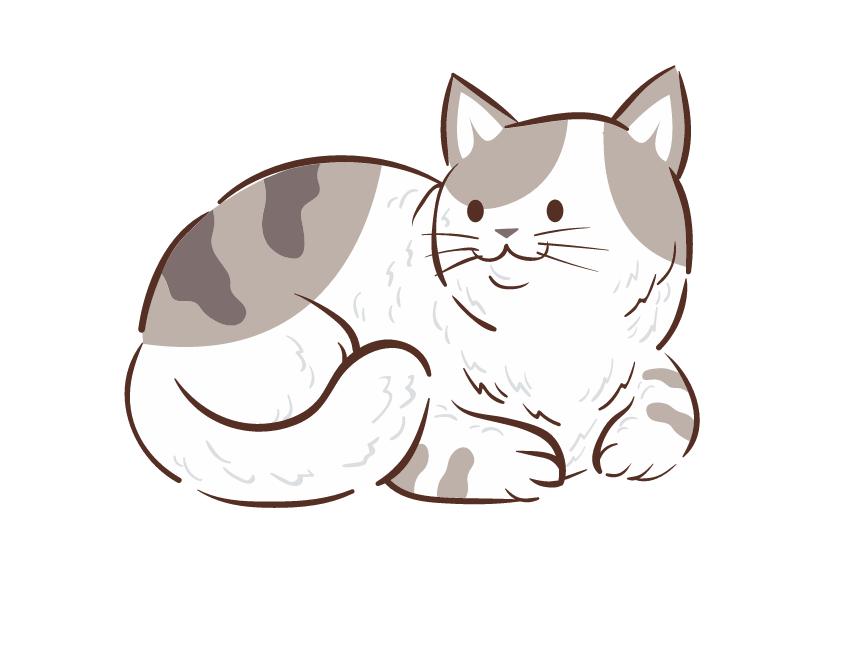
Frequently Asked Questions
What makes persian cats so special compared to other breeds in terms of weight?
Persian cats are known for their luxurious, long coats and gentle disposition. One of their most distinct features compared to other breeds is their weight. On average, Persian cats weigh between 8-10 pounds, making them one of the heaviest cat breeds. This weight contributes to their round, cuddly appearance which is why they are so popular.
Is there a difference in average weight between male and female persian cats?
Yes, there is a difference in average weight between male and female Persian cats. Male Persians typically weigh between 8-14 pounds, while female Persians weigh between 6-12 pounds.
Are there any specific dietary needs for persian cats to maintain a healthy weight?
Yes, there are specific dietary needs for Persian cats to maintain a healthy weight. These include feeding a high-quality, low-calorie diet, limiting treats, and providing adequate exercise. Most Persian cats should be fed twice a day and have access to fresh water at all times. Additionally, regular veterinary check-ups are important to ensure your cat is at a healthy weight.

